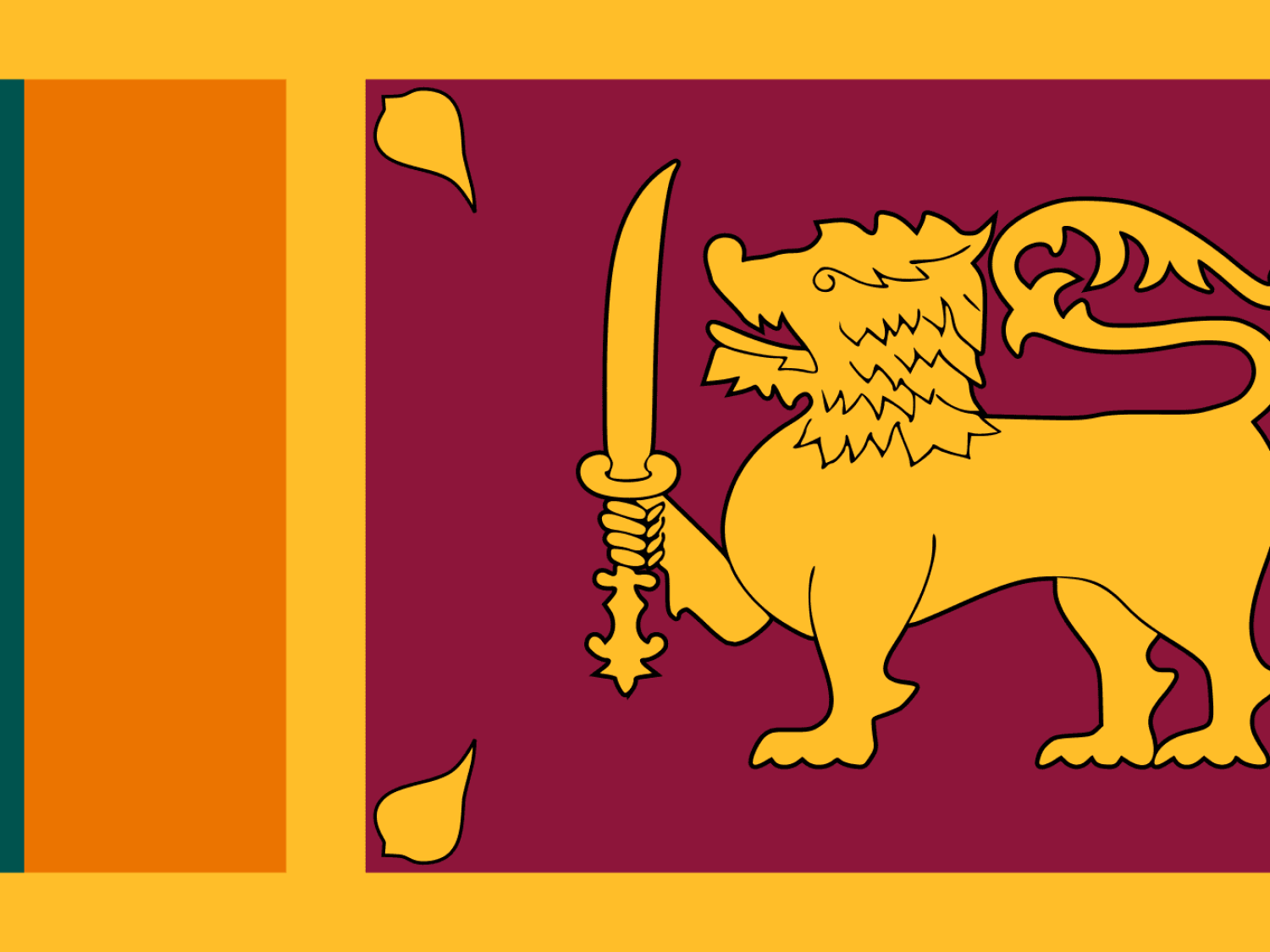Moving to Sri Lanka
Simply move better with reloqio
✔️ Get offers free of charge – No obligation, no worres.
✔️ Quality-tested partners – Reliable and experienced.
✔️ Selection in your region – Find the perfect offer and save up to 45%.

Overview
Introduction to Sri Lanka
Sri Lanka, an island nation located in the Indian Ocean, is known for its stunning natural beauty, rich cultural heritage, and diverse landscapes ranging from tropical beaches to lush tea plantations and ancient ruins. The capital city, Colombo, is a bustling hub that blends modernity with colonial charm, while cities like Kandy and Galle offer glimpses into the country’s historical and cultural past. Despite its many attractions, Sri Lanka faces challenges such as economic instability, political uncertainty, and underdeveloped infrastructure, which can affect the experience of expatriates living there.
Why Move to Sri Lanka
Moving to Sri Lanka offers the opportunity to live in a country with a vibrant culture, warm hospitality, and breathtaking natural beauty. For expatriates interested in development work, education, tourism, or entrepreneurship, Sri Lanka presents unique opportunities. The country’s affordable cost of living, diverse cuisine, and rich traditions are significant draws. However, those considering a move should be prepared for the challenges of living in a developing country, including occasional political unrest, economic fluctuations, and navigating a complex bureaucracy. Despite these challenges, many expatriates find the rewards of living in Sri Lanka to be well worth the complexities.
Cost of Living in Sri Lanka
The cost of living in Sri Lanka is generally low compared to Western countries, making it an attractive destination for expatriates on a budget. Housing, food, and transportation are all very affordable, particularly outside of major cities like Colombo. However, imported goods, luxury items, and international school fees can be expensive. Utilities, including electricity and internet, can also be costly and sometimes unreliable, particularly in rural areas. While daily expenses are low, expatriates may need to budget for certain items and services that are either scarce or expensive, such as private healthcare and imported products.
Visa and Residency
Types of Visas
Sri Lanka offers several types of visas, including tourist, business, and work visas. Tourist visas are relatively easy to obtain and can be extended for short periods, but they do not permit employment. Work visas require sponsorship from a Sri Lankan employer and involve submitting various documents, including proof of employment, a valid passport, and sometimes a criminal background check. Business visas are available for those conducting short-term business activities. It’s important to ensure that you apply for the correct visa type and that all documentation is accurate to avoid delays and complications.
Requirements for Obtaining Residency
Obtaining residency in Sri Lanka typically begins with securing a work visa. Once in the country, expatriates can apply for a long-term residence permit, which is usually tied to their employment. The process involves submitting proof of employment, housing arrangements, and sometimes a medical examination. Residency permits are generally valid for one year and can be renewed as long as the expatriate remains employed. Permanent residency is rare and usually requires long-term commitment or investment in the country. The process can be bureaucratic, so it’s advisable to work closely with your employer or a legal advisor to navigate it successfully.
Renewing Residency
Renewing residency in Sri Lanka involves extending your work visa and residence permit. The renewal process typically requires submitting updated proof of employment and housing, along with any other relevant documents. It’s advisable to start the renewal process well before your current permit expires to avoid any legal issues. Employers often assist with the renewal process, but it’s crucial to stay informed about any changes in immigration laws and ensure all paperwork is submitted on time.
Finding Accommodation
Popular Neighborhoods in Sri Lanka
In Colombo, popular neighborhoods for expatriates include Colombo 7 (Cinnamon Gardens), Colombo 3 (Kollupitiya), and Mount Lavinia. Colombo 7 is known for its leafy streets, colonial architecture, and proximity to international schools and embassies. Colombo 3 offers a mix of modern apartments, shopping centers, and dining options, making it popular among young professionals. Mount Lavinia, located just south of Colombo, offers a more relaxed lifestyle with access to beaches and a mix of local and expatriate communities. Housing in these areas can vary widely in price and quality, with options ranging from luxury apartments to more affordable houses.
Renting vs Buying Property
Renting is the most common option for expatriates in Sri Lanka, as property ownership is generally restricted to Sri Lankan citizens. Rental properties are available in major cities like Colombo and Kandy, with prices varying significantly depending on location, size, and quality. Leases typically require a security deposit and the first month’s rent in advance. Buying property in Sri Lanka is possible for foreigners under specific conditions, such as purchasing an apartment on the fourth floor or above in a condominium project. It’s advisable to work with a reputable real estate agent and legal advisor if considering purchasing property in Sri Lanka.
Tips for Finding Accommodation
When searching for accommodation in Sri Lanka, consider factors such as proximity to work, access to public transportation, and availability of amenities like schools, healthcare, and shopping centers. Working with a local real estate agent can be helpful, especially for expatriates unfamiliar with the market. It’s important to inspect properties carefully before signing a lease, as the quality of housing can vary widely. Be prepared to negotiate rental terms, and ensure that all lease agreements are clear and legally sound. Given the limited availability of high-quality housing, it’s advisable to start your search early, particularly in popular expatriate areas.
Sri Lanka’s location in the Indian Ocean provides easy access to neighboring countries, offering opportunities for travel and exploration. For those interested in exploring the region, the cultural richness and historical sites of India, the tropical beauty of the Maldives, or the vibrant cities of Thailand are all within reach.
Settling In
Healthcare System in Sri Lanka
Sri Lanka has a public healthcare system, but it can be under-resourced, particularly outside major cities like Colombo. Public hospitals and clinics are available, but many expatriates prefer to use private healthcare facilities, which offer higher standards of care and shorter waiting times. Private healthcare in Sri Lanka is generally affordable by Western standards, but it can still be expensive for certain treatments. It is essential to have comprehensive health insurance that includes coverage for private healthcare and potential medical evacuation, as specialized treatments may not be available locally. Access to quality healthcare can be a significant concern, so expatriates should plan accordingly.
Education System in Sri Lanka
Sri Lanka offers a variety of educational options for expatriate families, including public schools, private schools, and international schools. Public schools follow the Sri Lankan curriculum and teach primarily in Sinhala or Tamil, which can be challenging for non-Sinhala or non-Tamil-speaking children. Most expatriate families opt for international schools, which offer curricula based on British, American, or International Baccalaureate (IB) systems. These schools are primarily located in Colombo and are known for their small class sizes and personalized attention, though fees can be high. Early application is recommended, as spaces in international schools can be limited, particularly in popular grades.
Cultural Etiquette and Customs
Sri Lanka is a culturally rich society with deep Buddhist, Hindu, Muslim, and Christian influences. Understanding and respecting local customs is important for expatriates. Hospitality is a key aspect of Sri Lankan culture, and it’s common to be invited to homes for meals, where showing appreciation for the food and hospitality is essential. Dress codes are generally modest, especially when visiting religious sites or rural areas. Building personal relationships is important in both social and business settings, and taking the time to understand local customs and language, even at a basic level, can greatly enhance your experience in Sri Lanka. Additionally, expatriates should be aware of the country’s social and political sensitivities and approach discussions on these topics with caution.
{filterable_table}
Ready for your move to Sri Lanka? Get free quotes now!
Enquire about moving offers here and get quick answers with cost estimates.
It only takes 2 minutes and you can save up to 45% on your move to Sri Lanka!
